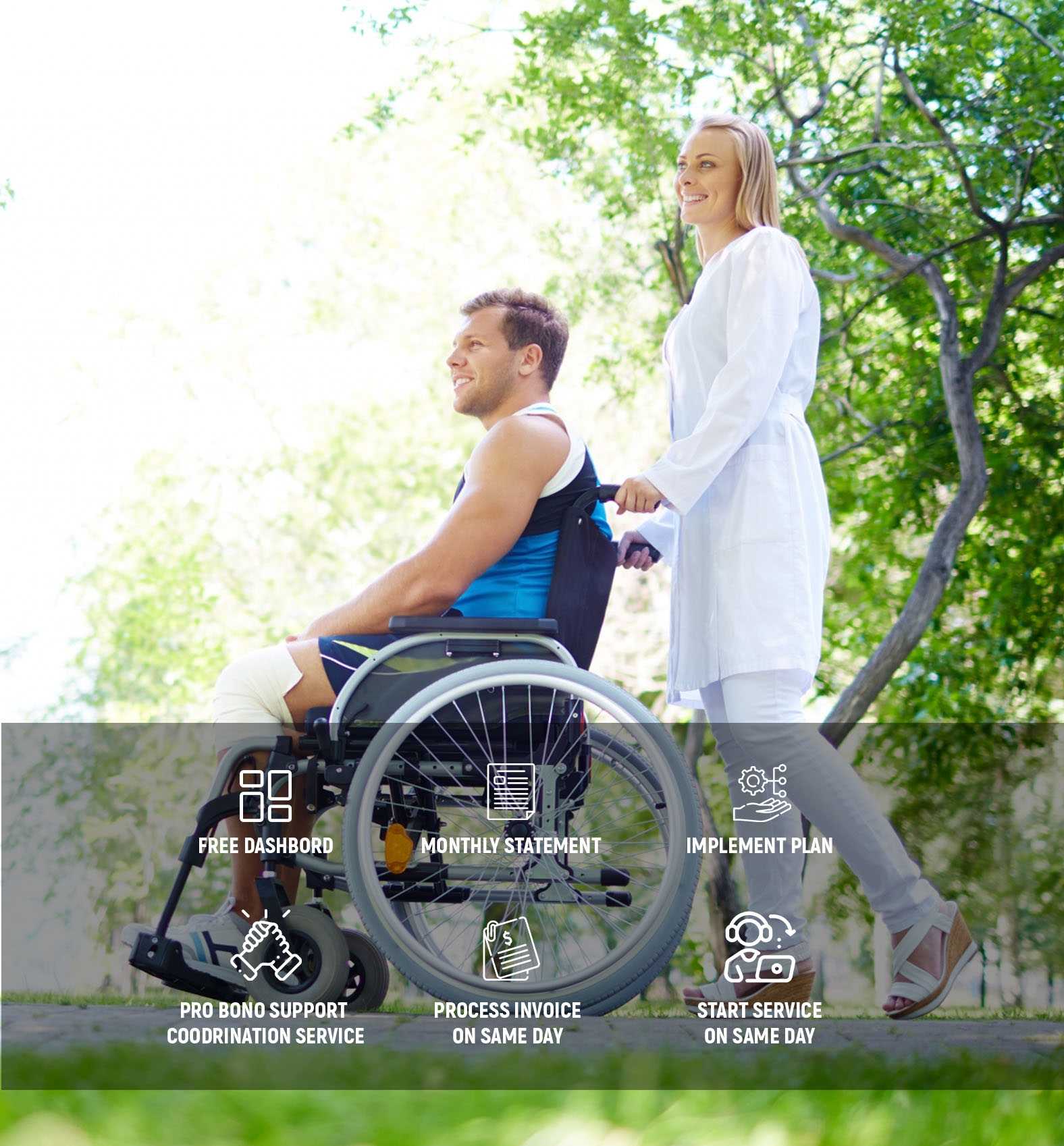Your National Disability Insurance Scheme goals are the guiding light of your NDIS plan. They are the benchmarks you set for yourself and are the vision of how you want to improve your life through the NDIS. They are also important because they define the outcomes you want, and any funding you receive will be tied to these outcomes. Learning about what exactly goals are and identifying and setting effective goals will help you prepare for your NDIS plan. Having a good understanding of goals may even give you a fresh perspective on your current situation and where you want to be in the future. On this page, we will guide you through the ins and outs of NDIS goals and help you better understand what they are all about.
What is an NDIS goal?
An NDIS goal is a statement that clearly describes an outcome that you want to achieve. The outcomes can be short-term goals that contribute to improvements in your day to day living, such as communication or greater independence. Long-term goals are also encouraged and can lead to more extensive milestone achievements like learning to drive or getting a new job. Think of individual goals as a picture of where you want to be at a particular point in time. A good term goal will have a clear outcome that is easy to measure and can be reached by following a set of directions.

What are the different types of goals?
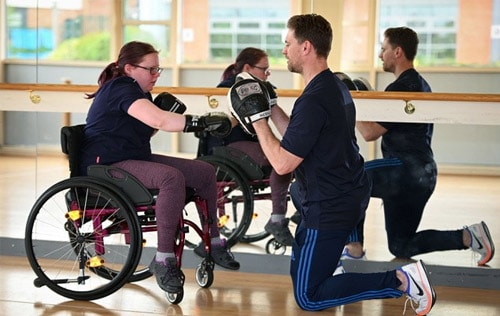
NDIS goals are not just one type and can be short, medium, to long-term goals. The types of goals you set are up to you, and your local area coordinator and support workers can help you set and reach them. An excellent way to think about the types of personal goals is to look at different areas of your life and try and decide where you would like improvements. Consider things like your home life, relationships, health and wellbeing, work, community participation, daily living, learning and choice, and control. Do you want easier access to your kitchen to prepare meals? Or perhaps you want to take up some community sport? It’s really up to you what you would like to achieve! It is common for participants to list about 2-3 short-term goals which are usually achievable within 12 months and before your next plan review. While it’s also desirable to plan out 2-3 medium to long-term goals that can be achieved over the course of 2-10 years’ time.
Why are goals important?
Goals are essential for a couple of main reasons.
One is that they help you better understand what you want to achieve in your life.
They can help you create a plan that is focused on what makes the most sense to you and your life.
Secondly, goals are essential because they are connected to funding. How much funding you receive will depend on the type and length of your goals and whether they are related to your NDIS plan.

How do you identify your plan goals?

Identifying goals may come easy for some who know what they want, but it is a challenge for most of us. Start by identifying any current goals you already have and writing them down, how you think you can achieve them and how long you think it will take. That’s a great starting point for most of us, and often just writing things down can be the first step to making a goal a reality. However, some goals and parts of our life that need improvement are harder to identify. That’s where the National Disability Insurance Agency (NDIA) has set up a framework for people to identify their goals.
The Eight Domains of Achieving Goals framework was developed by NDIA to help people with their goals. The framework is broken down into eight domains which are listed below
1. Choice and Control
– Ability to make choices and control what happens in your life, including your finances and support choices
2. Communication & Relationships
– Ability to communicate with others, including your family, friends, work colleagues and NDIS staff & support workers
3. Daily Living
– Ability to live independently on a day to day basis through improved daily living skills
4. Lifelong Learning
– Develop goals towards continuing education throughout your life
5. Home
– Improve the conditions of your home to suit your specific needs to improve living standards, access and independence.
6. Social and Community Participation
– Gain greater community access programs and support for increased participation within the community and develop social skills
7. Work
– Develop and improve your chances of finding, keeping and ascending within the workforce
8. Health and Wellbeing
– Maintain and improve your health and wellbeing through exercise and a healthy diet.
Sit down and think about each of the eight domains. Decide on your own or with the help of a family member or support worker if there are areas you may want to improve.
You don’t necessarily need to identify goals for each area, but it is up to you. Also, some areas may not come naturally to you, or you might know you want to improve a particular domain but are unsure about specifics.
For examples of goals that the NDIS is looking for, don’t set a broader goal. For instance, if you struggle with preparing your own meals, don’t write down ‘I want to get better at cooking’. Write something like ‘I want to be able to independently prepare each of my meals every day of the week’.
Identify areas you want to improve and get specific about what you want to achieve. But remember, these goals are for you and can be big, small and anything in between.
How to set your goal?
How do you record your goals?
Recording your goals takes place within your NDIS plan and can be done by yourself but are often recorded by a support coordinator or LAC.
Your plan manager or LAC will work with you to make sure your goals fit the NDIS goals criteria, and they will help you set goals in your plan within the participant statement.
While care coordinators and LAC’s are essential in helping you understand your goals and the limitations around funding, your goals are always set by yourself.

How will you pursue your goals?
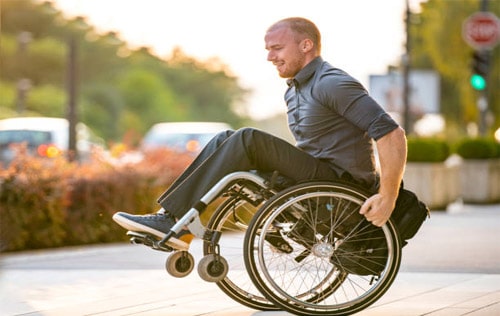
Now you’ve identified, set and recorded your goals, it’s time to get after them! You and your support network will likely have gone through the steps required to reach your goal during the initial planning meeting.
It’s time to write out the steps and begin putting plans in motion to reach your goals.
Let’s say one of your goals is to take up a community sport that caters for limited mobility participants. Your goal plan might read a little like this:
Goal: Over the course of my plan, I would like to participate in a community sport.
– I will find out what are the types of sports that might be accessible to me
– I will communicate with the sports staff to see if they have any availability and ask for advice.
– I will assess any gaps in capabilities that I may have in playing the sport
– I will identify the logistical difficulties in arriving on time at the correct location
How will you be supported to pursue your goals?
Support to reach your goals can come in many forms and not just from the NDIS. Once you’re ready to really get after your goals, you can assess the supports that may be available to you and are relevant to your goals. These supports could be members of the community, family or friends, as well as your support workers and plan managers.
Continuing from the playing sports goals, your support plan may look like this:
Goal – I want to play community sport
How I will be supported:
– My support worker will help me research and assess suitable sports that may be available to me.
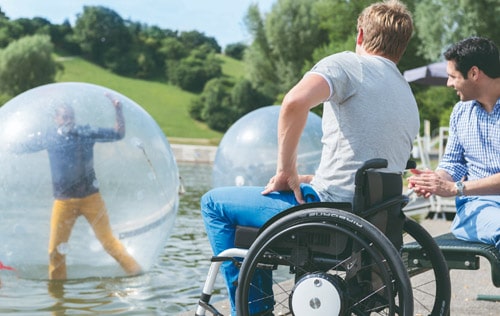
– The local sports club will provide specialised transport services that can be funded through the NDIS
– I will apply for funding with the help of my support worker for the sports equipment that I need.
How your goal progress will be assessed by the NDIS?
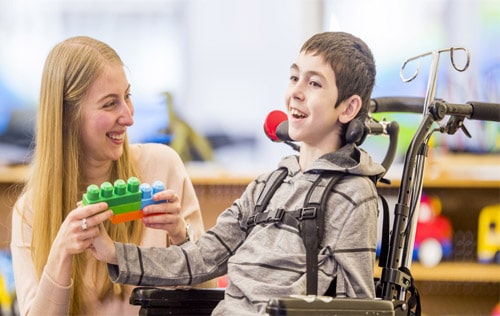
Outcomes are significant to the NDIS and are often used to measure how successful your plan is.
As your goals progress, you are expected to provide updates and track any progress that you’ve made along the way.
If you haven’t been making much progress, don’t worry, you can always assess and change your goals at any time.

